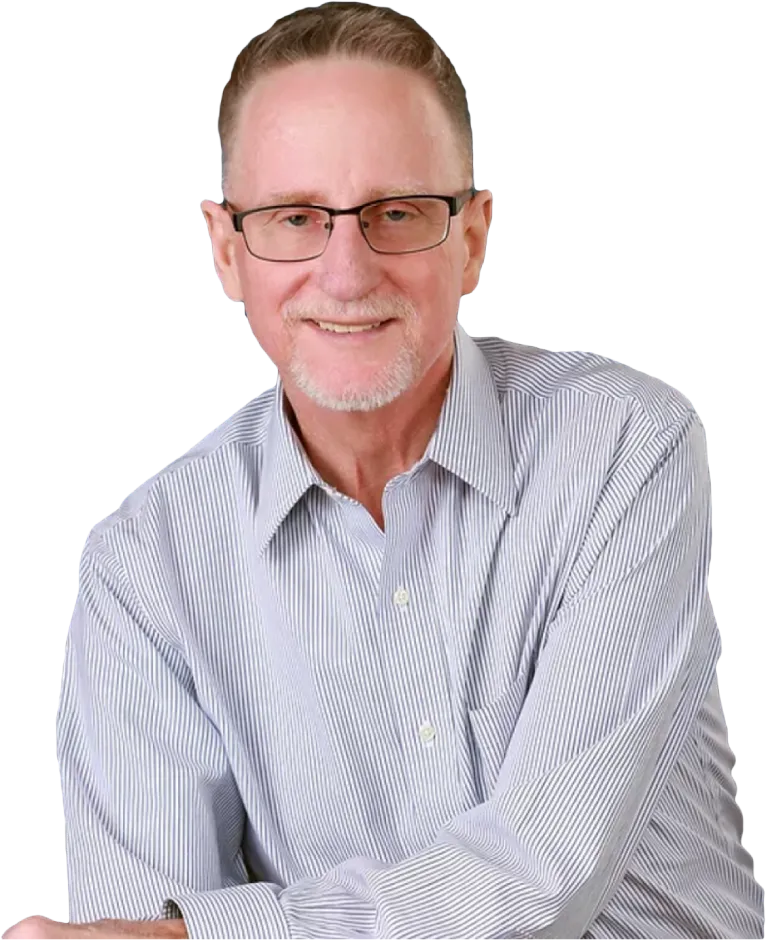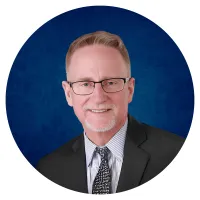SCOTT MASSEY
Inspirational Speaker
& Resilience Coach

FROM HIGH SCHOOL DROPOUT TO PHD
I started drinking when I was 12 and became a high school dropout by the time I was 15. In my twenties, I was waking up without knowing where I was or how I got there. My life didn't have meaning or purpose.
After thirty years of alcohol abuse, I decided to check into rehab and made an action plan for my life. It's been a difficult journey, but I'm almost 20 years sober now.
was a high school dropout, addicted to alcohol, and lacked hope. Now, I have a PhD, teach at the university level, and successfully run two businesses. I know adversity. I know struggle. And I know success.
Now I want to help you unleash the power to transform your life.
YOU HAVE THE POWER TO CHANGE THE TRAJECTORY OF YOUR LIFE
I believe each person has the ability to transform their life. Regardless of your past, you can make your future successful. Whether you’re struggling with addiction, broken relationships, or financial issues, you can enhance your life.
TESTIMONIALS
Dr. Scott Massey’s ability to talk with others about his past and how he got through it is amazing. Two members of my family struggle with alcoholism, and it’s difficult to watch, so his story resonated with me. He has and will continue to help others with their personal struggles.
—Katlyn B.
I have a lot of respect for Scott as a person. I’m twenty-two and living the young, “fun” stage of life, but his talk helped me realize the decisions I need to make now. I enjoyed his presentation; he spoke fearlessly.
—Danielle C.
Scott is incredibly inspiring! He took control of his life even when he didn’t have others supporting him. I enjoyed hearing his story. He did a great job making it relatable to everyone and challenged us to reflect on our own lives.
—Ellie W.
I felt the most impact when Dr. Massey talked about what makes him a better person. I personally deal with anxiety and think about things I can’t do instead of focusing on what I can do. After hearing Dr. Massey share his motivations, though, I’m inspired to set my mind on the things I can do!
—Danielle C.
Listening to Scott gave me hope for my future. He posed challenging questions that truly got me thinking. I think others can benefit from reflecting on his story and his questions, too.
—Brittany S.
Scott has a powerful story and I hope he continues to share it. He realized he wasn’t the person he wanted to be, so he made decisions that turned his life around. He created a plan of action and changed his life—we can do the same.
—Isaac D.
BOOK AN APPOINTMENT
Scott Massey is available for coaching or speaking at your next event!
Take the first step and book an appointment with Scott today!
RECENT POSTS

Building from the Ground Up: Your First Steps as an Inaugural PA Program Director
You as the Inaugural PA Program Director
Being appointed as the inaugural director of a new PA program is a unique and complex professional responsibility. This role positions you to establish a strong foundation that will influence the program’s trajectory and its future students. The task ahead may feel both exciting and overwhelming—but thoughtful planning and focused leadership will guide your path forward.
1. Establish a Comprehensive Timeline
Start by developing a detailed timeline, working backward from the projected ARC-PA site visit and submission deadlines. This timeline will serve as your central planning tool and help align priorities across multiple areas. It also plays a key role in team recruitment and project management. Reference the ARC-PA 5th Edition Standards throughout to ensure alignment with accreditation expectations.
2. Recruit Essential Personnel
Hiring must begin immediately. The medical director—required to be on board at least 15 months prior to the site visit—plays a strategic role not only in program leadership but also in the development of clinical partnerships. Additionally, secure at least 2.0 FTE PA-C principal faculty and 1.0 FTE support staff no later than nine months before the scheduled site visit.
3. Form an Advisory Committee
Assemble an advisory group early in the process. Ideal members include regional chief medical officers, healthcare leaders, institutional representatives from other health programs, and practicing PAs. Including individuals with diverse perspectives—especially those who challenge the status quo—can lead to creative problem-solving and deeper community engagement.
4. Understand Institutional Processes
Learn the policies and procedures governing hiring, curriculum development, and administrative approvals within your institution. This knowledge will streamline processes and ensure compliance with internal requirements. Being proactive in this area minimizes delays and helps you build credibility as a leader within the institution.
5. Build Strategic Relationships
Establishing trust and collaboration with key departments—such as admissions, academic affairs, and faculty governance—is essential. Introduce yourself early, and regularly engage with stakeholders to build visibility and support. These relationships will be critical in navigating challenges and aligning your program’s goals with the institution’s broader mission.
Final Note:
Launching a PA program requires strategic thinking, clear communication, and ongoing collaboration. These early steps will set the tone for the development process and shape the future success of the program.
SCOTT MASSEY

Inspirational Speaker
& Resilience Coach

FROM HIGH SCHOOL DROPOUT TO PHD
I started drinking when I was 12 and became a high school dropout by the time I was 15. In my twenties, I was waking up without knowing where I was or how I got there. My life didn't have meaning or purpose.
After thirty years of alcohol abuse, I decided to check into rehab and made an action plan for my life. It's been a difficult journey, but I'm almost 20 years sober now.
was a high school dropout, addicted to alcohol, and lacked hope. Now, I have a PhD, teach at the university level, and successfully run two businesses. I know adversity. I know struggle. And I know success.
Now I want to help you unleash the power to transform your life.

YOU HAVE THE POWER TO CHANGE THE TRAJECTORY OF YOUR LIFE
I believe each person has the ability to transform their life. Regardless of your past, you can make your future successful. Whether you’re struggling with addiction, broken relationships, or financial issues, you can enhance your life.
TESTIMONIALS
Dr. Scott Massey’s ability to talk with others about his past and how he got through it is amazing. Two members of my family struggle with alcoholism, and it’s difficult to watch, so his story resonated with me. He has and will continue to help others with their personal struggles.
—Katlyn B.
I have a lot of respect for Scott as a person. I’m twenty-two and living the young, “fun” stage of life, but his talk helped me realize the decisions I need to make now. I enjoyed his presentation; he spoke fearlessly.
—Danielle C.
Scott is incredibly inspiring! He took control of his life even when he didn’t have others supporting him. I enjoyed hearing his story. He did a great job making it relatable to everyone and challenged us to reflect on our own lives.
—Ellie W.
I felt the most impact when Dr. Massey talked about what makes him a better person. I personally deal with anxiety and think about things I can’t do instead of focusing on what I can do. After hearing Dr. Massey share his motivations, though, I’m inspired to set my mind on the things I can do!
—Danielle C.
Listening to Scott gave me hope for my future. He posed challenging questions that truly got me thinking. I think others can benefit from reflecting on his story and his questions, too.
—Brittany S.
Scott has a powerful story and I hope he continues to share it. He realized he wasn’t the person he wanted to be, so he made decisions that turned his life around. He created a plan of action and changed his life—we can do the same.
—Isaac D.
BOOK AN APPOINTMENT
Scott Massey is available for coaching or speaking at your next event!
Take the first step and book an appointment with Scott today!
RECENT POSTS

Building from the Ground Up: Your First Steps as an Inaugural PA Program Director
You as the Inaugural PA Program Director
Being appointed as the inaugural director of a new PA program is a unique and complex professional responsibility. This role positions you to establish a strong foundation that will influence the program’s trajectory and its future students. The task ahead may feel both exciting and overwhelming—but thoughtful planning and focused leadership will guide your path forward.
1. Establish a Comprehensive Timeline
Start by developing a detailed timeline, working backward from the projected ARC-PA site visit and submission deadlines. This timeline will serve as your central planning tool and help align priorities across multiple areas. It also plays a key role in team recruitment and project management. Reference the ARC-PA 5th Edition Standards throughout to ensure alignment with accreditation expectations.
2. Recruit Essential Personnel
Hiring must begin immediately. The medical director—required to be on board at least 15 months prior to the site visit—plays a strategic role not only in program leadership but also in the development of clinical partnerships. Additionally, secure at least 2.0 FTE PA-C principal faculty and 1.0 FTE support staff no later than nine months before the scheduled site visit.
3. Form an Advisory Committee
Assemble an advisory group early in the process. Ideal members include regional chief medical officers, healthcare leaders, institutional representatives from other health programs, and practicing PAs. Including individuals with diverse perspectives—especially those who challenge the status quo—can lead to creative problem-solving and deeper community engagement.
4. Understand Institutional Processes
Learn the policies and procedures governing hiring, curriculum development, and administrative approvals within your institution. This knowledge will streamline processes and ensure compliance with internal requirements. Being proactive in this area minimizes delays and helps you build credibility as a leader within the institution.
5. Build Strategic Relationships
Establishing trust and collaboration with key departments—such as admissions, academic affairs, and faculty governance—is essential. Introduce yourself early, and regularly engage with stakeholders to build visibility and support. These relationships will be critical in navigating challenges and aligning your program’s goals with the institution’s broader mission.
Final Note:
Launching a PA program requires strategic thinking, clear communication, and ongoing collaboration. These early steps will set the tone for the development process and shape the future success of the program.

